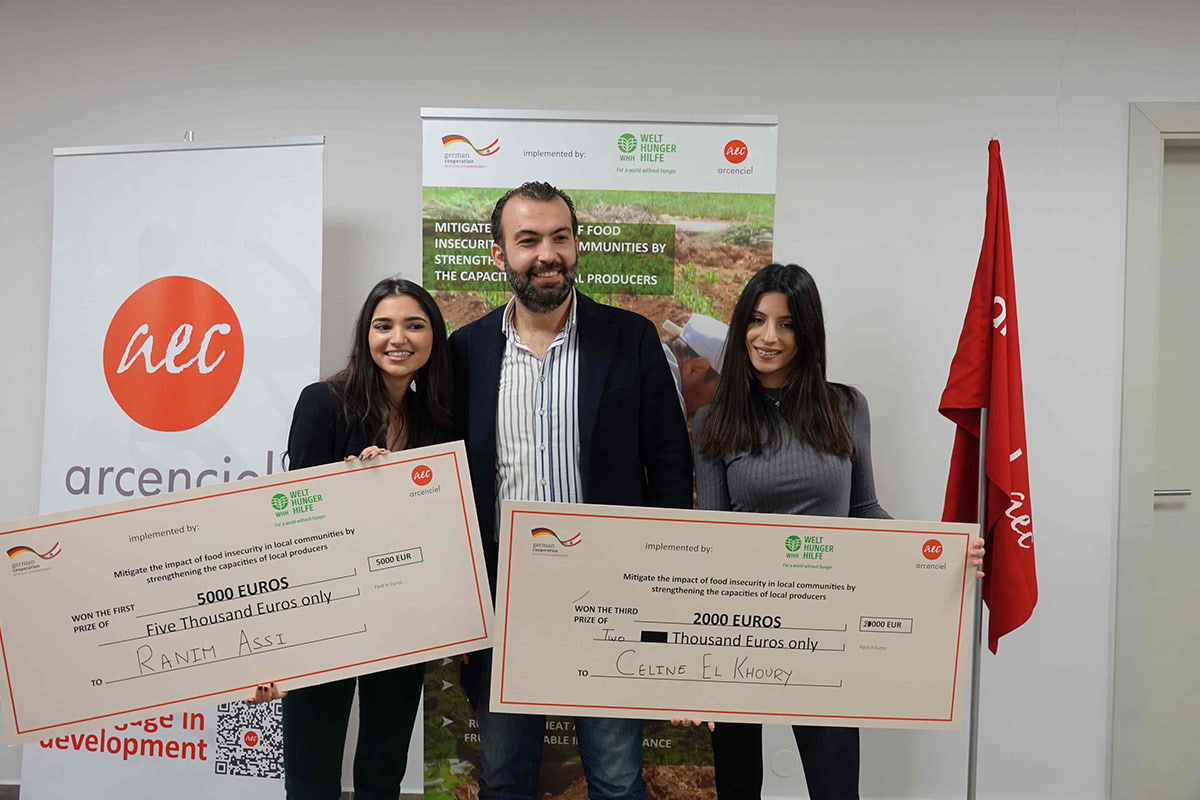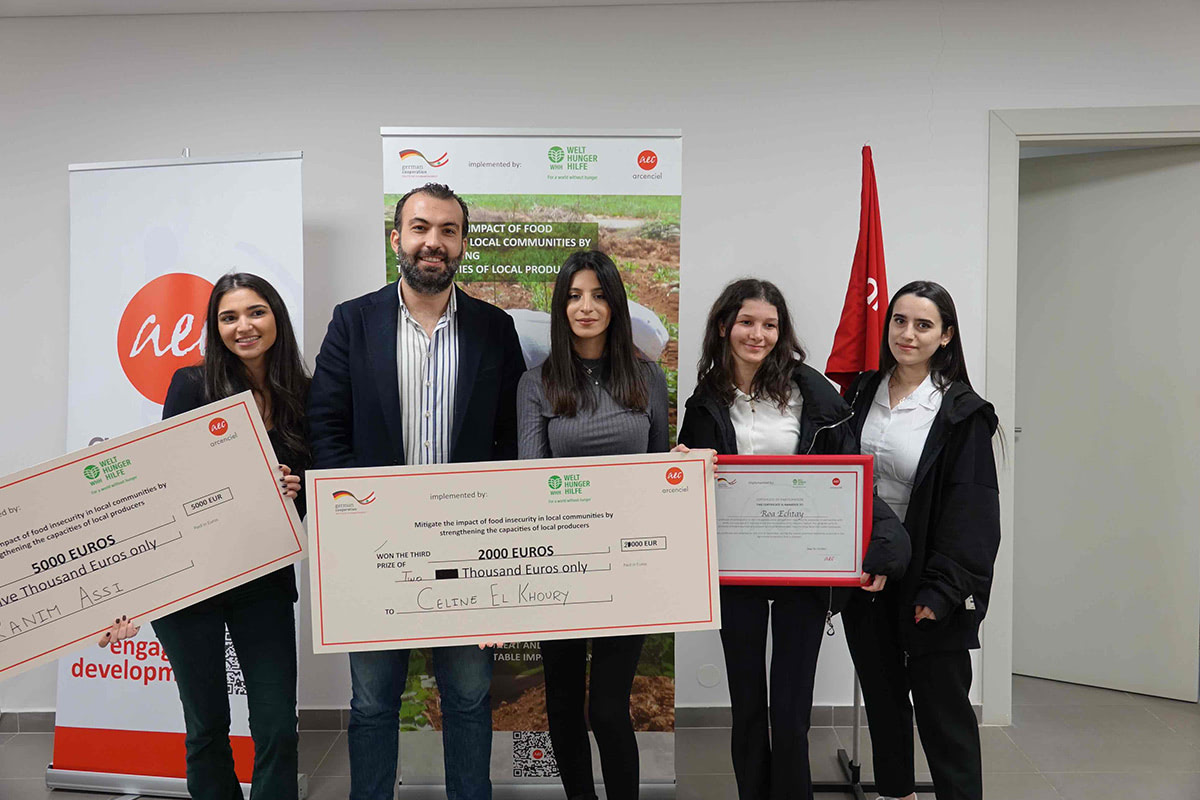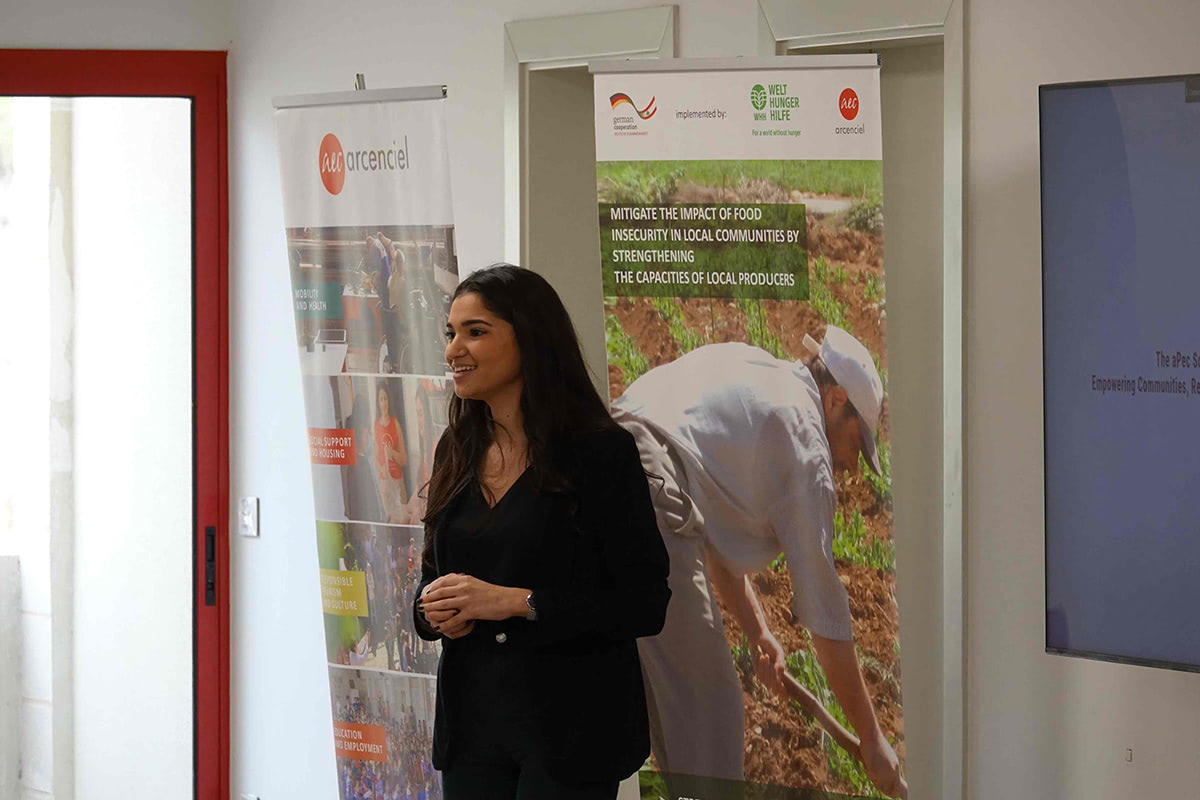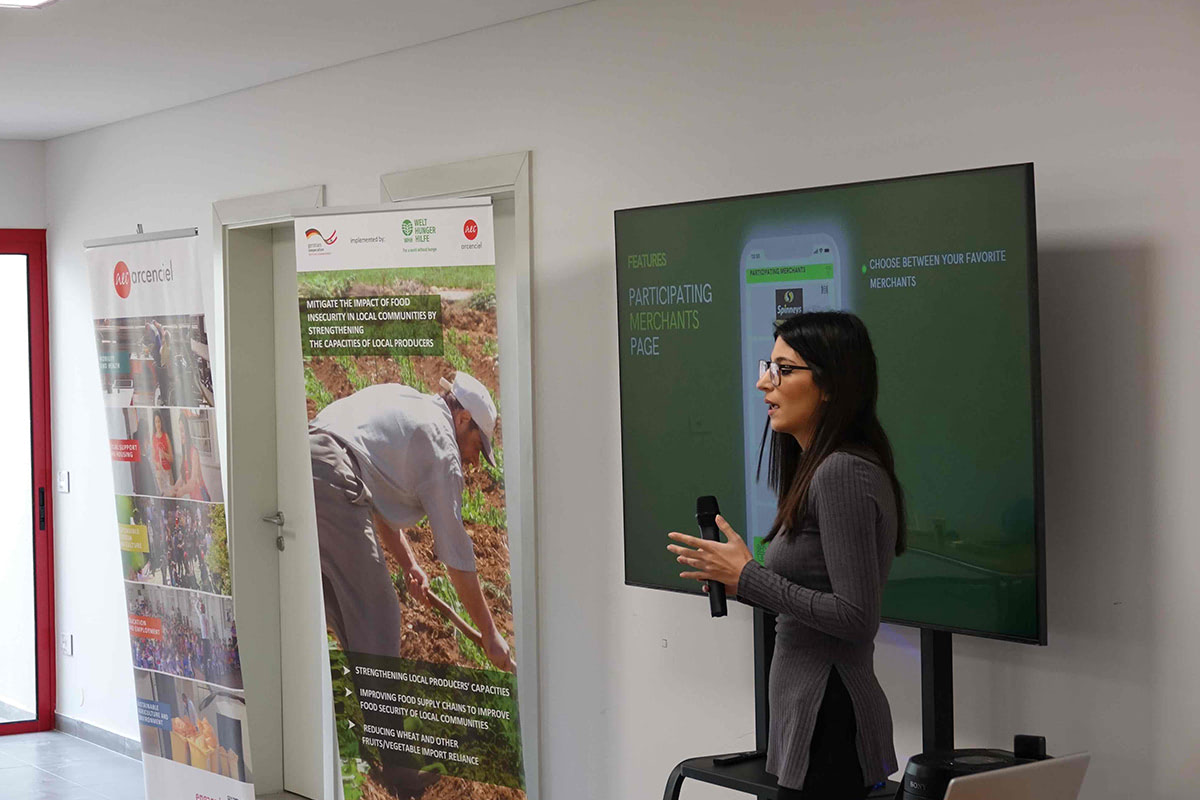LAU Nutrition Students Win First and Third Prize in Food Security Competition
Four students in the Nutrition Program excel in a project addressing food production challenges with reliable and creative solutions.
Whether it is raising awareness on food waste prevention or finding innovative solutions to historical challenges in food production, LAU’s Nutrition students are always at the top of their game in ensuring healthy lives and promoting wellbeing.
In a significant achievement, three proposals submitted by four students from the Nutrition program secured top positions in the “Mitigate the impact of food insecurity in local communities by strengthening the capacities of local producers” project, implemented by arcenciel, a Lebanese-based non-profit organization, and Welt Hunger Hilfe, a large private aid agency in Germany. The project was funded by the German Agency for International Cooperation, which has been supporting Lebanon’s economic and social development for more than 40 years.
Out of 33 submissions to arcenciel, graduate students in the Nutrition program Ranim Assi (BS ‘23) and Celine El Khoury (BS ‘23) secured first and third positions respectively, earning monetary prizes. Additionally, senior students Roa Echtay and Hanine El Hajj landed in the top 10 and received a certificate for their participation. The students were praised for their novel and creative approaches to identifying dependable solutions for food production issues.
Further to developing their projects with Associate Professor of Food Science and Technology Hussein F. Hassan, the participants received mentorship from arcenciel’s project team—agricultural, agro-food, food lab and business experts—for two months to help them present their proposals to the jury.
Highlighting the project’s commitment to addressing persistent challenges, Assi clinched first place with a proposal titled, “Valorization of apple loss by producing pectin out of it.” This initiative centered on maximizing the value of apple by-products, specifically the pulpy residue known as pomace, through the extraction of pectin to facilitate its value-added and sustainable uses. Doing so alleviates escalating environmental concerns, particularly in a country where villages are renowned for their apple orchards.
When asked about the inspiration behind her project, Assi noted that “a lot of apple pomace gets discarded in activities like making apple juice concentrates. This made me think that there has to be a way to put this waste to good use.”
“This isn’t just about tackling food waste;” she added, “it’s also about bringing forth nutritional health benefits. What really stood out for me through this journey is a deeper appreciation of sustainable practices and their meaningful impact on our wellbeing.”
Her peer El Khoury ranked third with her project, “Zero Waste Bite,” a smartphone application that tackles food waste by promoting better management of food supplies and minimizing the chances of items being overlooked and ultimately wasted.
“The economic crisis [in Lebanon] served as a backdrop, emphasizing the need for affordable options and sustainable practices to support individuals and businesses alike,” she said.
In her attempt to come up with a sustainable solution while also juggling the demands of a master’s program and internship at LAU Medical Center–Rizk Hospital, El Khoury was proud that “integrating theoretical foundations from my program with the practical application of this project has served as a vital link between academic knowledge and real-world problem-solving,” she said.
Echtay and El Hajj, who previously won the National Best Poster Competition on Food Waste Awareness, took their project a step further to highlight working women in their proposal, “Tackling oil leakage from Makdous jars.” Noting that the primary producers of Lebanese mouneh are women, Echtay and El Hajj sought to recognize their needs and carefully studied the issue to ensure the microbiological safety of the preserved food inside the jars, thus enhancing its shelf life and production value.
“Considering the systemic marginalization experienced by widowed women, we found it necessary to focus on addressing their economic and financial needs,” they noted in a joint comment. “This highlighted the importance of tackling the underlying social disparities and advocating for inclusive solutions in hopes of raising awareness and helping in instigating change.”
The students’ participation in the project underscores the emphasis of the Nutrition program on practical, community-centric approaches. In addition to earning certificates and monetary rewards, the winners “gain exposure that facilitates networking with influential decision-makers to make their projects come to life,” said Dr. Hassan. “This ultimately strengthens their professional networks and enhances their potential career prospects.”
“This is truly a remarkable achievement and a testament to the hard work and dedication of [our students],” remarked Interim Dean of the School of Arts and Sciences Haidar Harmanani. “Such initiatives showcase the creativity and practicality of our students in addressing real-world challenges.”


